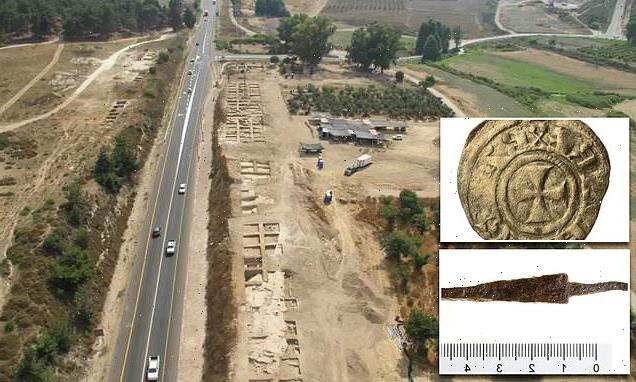BBC Breakfast discusses potential effect flu jab delays
We use your sign-up to provide content in ways you’ve consented to and to improve our understanding of you. This may include adverts from us and 3rd parties based on our understanding. You can unsubscribe at any time. More info
British biotech firm Enesi Pharma announced it will begin clinical trials to help contain the outbreak of a ‘super cold’. Enesi Pharma joined forces with National Institutes of Health (NIH) in the US to test its ImplaVax device with a pandemic flu vaccine. Trials in animals are due to begin before the end of the year.
It will work by reformulating liquid vaccines into a small solid stick – 0.85mm in diameter and 3.5mm long – with a point at the end.
The stick is inserted into the ImplaVax device, which injects it into the patient without a needle.
It is designed to be pain-free and instead feel like a flick of the skin, according to Enesi Pharma.
It can be stored for months in high temperatures, which means it can be used in vaccination programmes in developing countries in hotter climates of the Southern Hemisphere.


This could help to expand the reach of vaccines and enable wider rollouts by healthcare providers.
GPs around Britain have seen complaints from patients soar about a flu-like cold which has been given the nickname the “super cold”.
David Hipkiss, chief executive of Enesi, said: “ImplaVax represents a potential paradigm shift in the deployment and reach of mass-immunisation programmes like those regularly undertaken for influenza.”
British companies and health authorities have been pressed to quickly develop new innovative treatments and technologies since the outbreak of coronavirus.
And this is not the first time trials for a needle-free vaccine have been announced.

Back in August, UK biotech firm Scancell announced plans to test its Covid vaccine in clinical trials, also using a needle-free device.
But, slightly different to Enesi’s needle-free technology, Scancell’s device actually penetrates the skin through a stream of fluid in a tenth of a second.
The UK’s rate of vaccinations has slowed down over the last few months.
Experts now believe that the introduction of needle-free jabs may help convince some vaccine sceptics to change their minds and decide to take up the vaccine – to help reduce the rate of coronavirus infections.
Health secretary Savid Javid today urged the public to get vaccinated and take precautions.
DON’T MISS
Covid breakthrough: New Oxford vaccine tipped to end Delta variant [REPORT]
Covid breakthrough as Bill Gates commits £90m to vaccine-alternative [REVEAL]
Scientists in China stunned after finding ‘bizarre’ dog-sized scorpion [INSIGHT]


He also announced four million booster jabs have now been administered, as well as two new antiviral drugs to treat Covid.
Mr Javid announced the purchase of 730,000 doses of the treatments in a bid to keep the death rates low.
The Health Secretary said: “These antivirals have the potential to speed up recovery time and to stop infections from progressing.
“If these treatments get approval, then we can provide some of the most vulnerable patients with vital protection this winter. And I want to deploy them as quickly as possible.”
Source: Read Full Article


